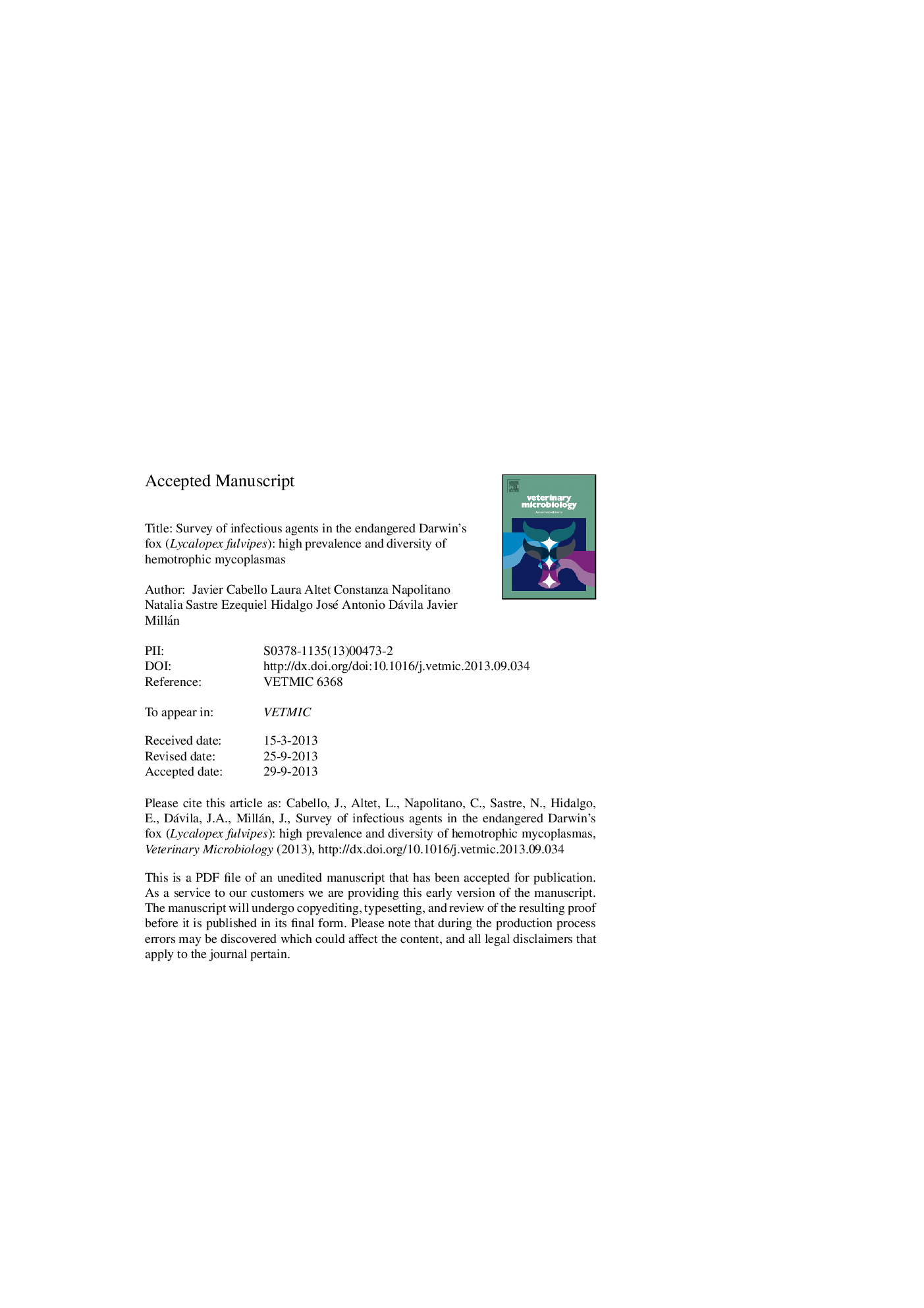| Article ID | Journal | Published Year | Pages | File Type |
|---|---|---|---|---|
| 5800954 | Veterinary Microbiology | 2013 | 23 Pages |
Abstract
Very little is known about the diseases affecting the Darwin's fox (Lycalopex fulvipes), which is considered to be one of the most endangered carnivores worldwide. Blood samples of 30 foxes captured on Chiloé Island (Chile) were tested with a battery of PCR assays targeting the following pathogens: Ehrlichia/Anaplasma sp., Rickettsia sp., Bartonella sp., Coxiella burnetti, Borrelia sp., Mycoplasma sp., Babesia sp., Hepatozoon canis, Hepatozoon felis, Leishmania donovani complex, and Filariae. Analysis of the 16S rRNA gene revealed the presence of Mycoplasma spp. in 17 samples (56.7%, 95% Confidence Intervals= 38.2-73.7). Of these, 15 infections were caused by a Mycoplasma belonging to the M. haemofelis/haemocanis (Mhf/Mhc) group, whereas two were caused by a Mycoplasma showing between 89% and 94% identity with different Candidatus Mycoplasma turicensis from felids and rodents hemoplasmas. The analysis of the sequence of the RNA subunit of the RNase P gene of 10 of the foxes positive for Mhf/Mhc showed that eight were infected with M. haemocanis (Mhc), one with a Mycoplasma showing 94% identity with Mhc, and one by M. haemofelis (Mhf). One of the foxes positive for Mhc was infected with a Ricketssia closely related to R. felis. All foxes were negative for the other studied pathogens. Our results are of interest because of the unexpectedly high prevalence of Mycoplasma spp. detected, the variability of species identified, the presence of a potentially new species of hemoplasma, and the first time a hemoplasma considered to be a feline pathogen (Mhf) has been identified in a canid. Though external symptoms were not observed in any of the infected foxes, further clinical and epidemiological studies are necessary to determine the importance of hemoplasma infection in this unique species.
Keywords
Related Topics
Life Sciences
Agricultural and Biological Sciences
Animal Science and Zoology
Authors
Javier Cabello, Laura Altet, Constanza Napolitano, Natalia Sastre, Ezequiel Hidalgo, José Antonio Dávila, Javier Millán,
